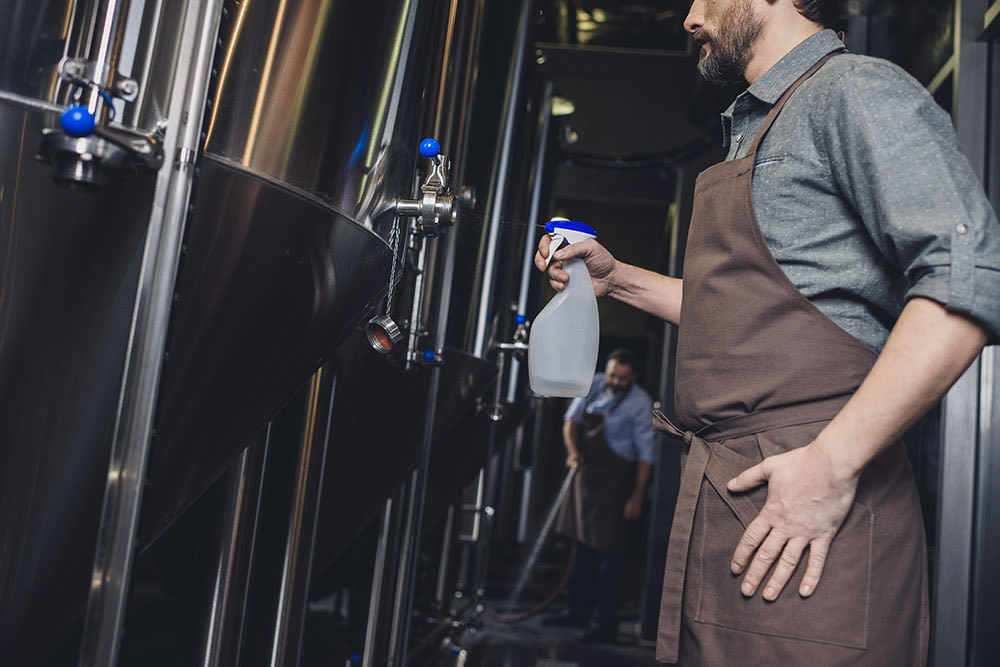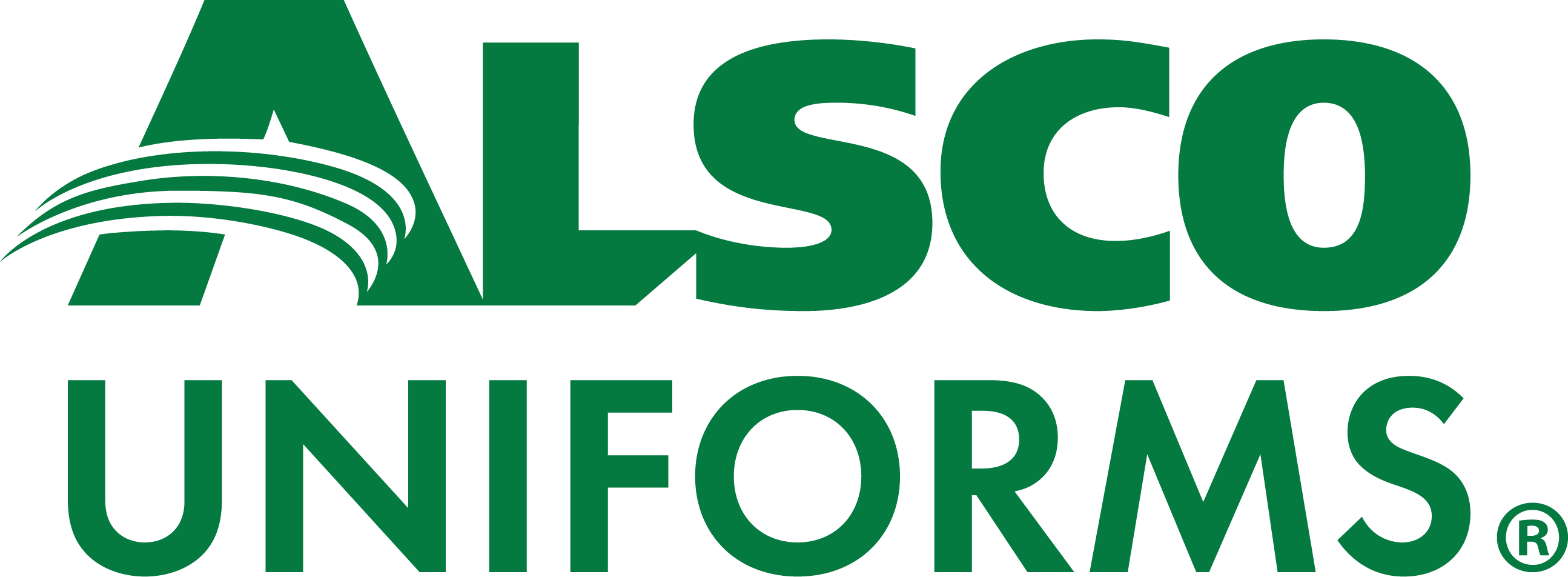
Industrial stainless steel is an alloy containing iron, at least 11% chromium and several other elements, such as carbon. Industrial stainless steel is rigid and durable, and it benefits many businesses because it can resist corrosion and oxidation.
It is important to consistently clean and maintain stainless steel surfaces to ensure they function optimally and last as long as possible. We’ve outlined the best products to use for cleaning industrial stainless steel.
Products to Consider for Cleaning Industrial Stainless Steel
There are many products to consider to effectively clean and maintain your business’s stainless-steel surfaces and equipment. Specialized stainless steel cleaning products offer the best solution because they are designed to clean stainless steel thoroughly without damaging the surface. If you use a facility services products provider like Alsco Uniforms, you’ll always have the right amount of these cleaning solutions on hand.
Some other notable choices for cleaning industrial stainless steel include the following:
Baking soda: For smaller areas, baking soda is a natural cleaning product that is capable of removing some stains and the accumulation of dirt and grime on the surfaces of stainless-steel equipment, such as countertops and storage facilities in restaurants. Baking soda usually isn’t a practical solution for large surfaces like those found in industrial kitchens, and it won’t be as effective as traditional cleaning products.
Vinegar: Vinegar is a natural cleaning agent and potentially helpful in removing the accumulation of dirt and grime. A practical solution is to mix an equal amount of water and vinegar in a cup or bowl and then apply it to surfaces of stainless-steel equipment using a cloth. Gently scrub the surface, and finish the process by rinsing with water and drying. Remember that although vinegar is an effective cleaner, it won’t disinfect.
Citric acid: Citric acid is a safe, natural product widely available in stores. The acid in this product helps break down accumulations of dirt, grime and mineral deposits, and there is a limited risk of damaging the surface of your stainless-steel equipment. An optimal solution is approximately one part citric acid with 10 parts water. Apply the solution using a cloth. Complete by rinsing the surface you have just washed and then wiping with a cloth until dry. Like vinegar, citric acid isn’t a disinfectant. Although it can work for standard cleaning, it’s not ideal for industrial settings.
Stainless steel cleaner: This is the best cleaner for industrial environments. You can choose from any of several widely available commercial products that are designed to clean stainless steel. These products have a heightened ability to clean and disinfect beyond what baking soda and vinegar can achieve. They can remove smudges and fingerprints from the surfaces of your stainless-steel equipment. Most stainless steel cleaners come in spray bottles that make application easy. It is best to use gloves and a mouth and nose cover when using such products to prevent them from being inhaled or contacting the skin.
Microfiber cloths: Microfiber cloths are composed of a unique blend of fibers that makes them light, soft, highly absorbent and capable of cleaning the equipment surfaces without causing damage. You can use either wet or dry microfiber cloths to achieve different cleaning-related goals, such as wiping off smears and smudges in the case of the former and removing stains or dirt in the case of the latter.
Tips for Cleaning Industrial Stainless Steel
The following is a list of tips and strategies you can use to make sure your industrial stainless steel remains clean and well-maintained at all times:
Follow the recommendations of the manufacturer when using cleaning products.
Choose microfiber cloths to minimize the risk of scratching or otherwise damaging the surfaces of your industrial stainless-steel equipment.
Use a commercial stainless-steel cleaner for challenging and hard-to-remove stains.
Avoid using products that contain bleach or chlorine. These products can lead to discoloration over time and may lead to pitting or surface corrosion in certain areas.
Use soft cloths, warm water and a mild soap or detergent (or baking soda) for less severe stains, dirt and grime.
Move the cloth in the same direction as the grain, when applicable, to prevent damage.
Evaluate all stainless-steel surfaces and equipment regularly to check for damage.
Consider using heavy-duty equipment, such as a steam cleaner, for large surfaces and deep cleaning.
Use protective equipment when cleaning stainless steel surfaces, especially when using robust commercial products.
Get rid of hazardous material safely and by the recommendations listed on the product label to minimize the environmental impact.
Alsco Uniforms Can Simplify the Process
You can eliminate much of the worry and hassle associated with cleaning industrial stainless steel in your business when you use a service like Alsco Uniforms. We can advise you on the best products to clean your industrial stainless steel, and we can make sure they are always fully stocked in your business with our facility services. Contact us today to learn more about what we can do for your business.
References
Cleaning & Sanitizing – 5.1 Cleaning & Sanitizing. (2023). Government of British Columbia.
What is Stainless Steel? (September 2020). Industry Today.
